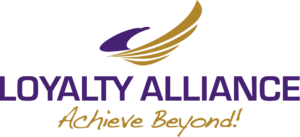From cash reserves to financial professionals, here are five key ideas to help your business navigate volatility and build long-term resilience.
This challenging era has taught business owners many lessons, says Amy Friedrich, president of U.S. Insurance Solutions for Principal®.
One is the need for long-term financial planning that gives your business the flexibility to handle extreme volatility.
“Owners probably have learned enough in the last few years to see how they might prepare differently to protect their business against the next setback,” Friedrich says.
These five steps can help you build a more durable financial plan.
- Cash reserves: Ensure you have the cash to support your business through a downturn. Avoid raiding personal finances to keep the company afloat.
Stockpile cash in the boom years to avoid risking your personal finances by, for instance, taking out a second home mortgage for your business. The old rule of thumb was a six-month cushion.
Yet the pandemic impact lasted more than six months, says Mark West, national vice president of business solutions for Principal. Everything businesses have endured is an argument for doubling down on the old rule.
“The worst-case scenario?” West says. “You have a year’s worth of cash reserves and don’t need it. That’s not a bad outcome.”
If you must tap into other emergency cash, “make sure you understand all the sources of cash at your disposal and in which order it makes sense to use them,” West says.
One common forgotten source is the cash value of a permanent life insurance policy. While the primary purpose of life insurance is to provide a death benefit, the cash value accumulating in some permanent life insurance policies can be used during your lifetime.
- Business succession: Plan how your business can launch you into your next phase—with your financial security and comfort intact.
The first step to a successful business succession can be as simple as answering the who, what, and when: Who do you want to sell your business to, what’s your business worth, and when do you want to sell?
Map out a realistic timeline locked into place by a well-funded buy-sell agreement. Your agreement should:
- identify a buyer and fair price,
- outline the next generation of business management,
- protect employees, customers, suppliers, and creditors during the transition, and
- establish an accurate value for the business.
Give yourself time to adjust, West says. Some owners who want to hand down the business to a family member as a gift don’t consider in detail how, without their business, they might lack the necessary income to support the next phase of their career or living expenses. Those extra years may allow you to balance the right successor and income.
- Business valuation: This crucial number determines lines of credit, acceptable debt load, and even the timeline for selling your business.
If a surprise event forces you suddenly to sell your business, you or your successors—or both—could end up frustrated if the company’s value is a shock.
“Knowing the value of the business is the foundation of planning,” West says. “A business owner can have all kinds of great ideas, but they’re worthless if the owner can’t put solid numbers to what they really mean for both owner and buyer.”
- Crisis planning: This COVID pandemic has been hard enough, but planning for the next business disruption is just as important.
“Small business owners, in particular—are so often absorbed at the moment because of the all-consuming nature of their work,” Friedrich says.
Try to take a minute to pause, she says. What have you learned since 2020 that you might do differently next time?
- Set aside more money?
- Take care of your employees differently.
- Trust different sources of information?
When you do get to the point of adapting your business to better prepare for the next disruption, no one solution is suitable for all owners. Set up your benefits package to reflect that. You or your key employees may need help with basic income or life protection. Or maybe you’re more interested in helping your employees save for the future. You also may be concerned about the work capacity of employees as they manage hybrid work or personal responsibilities at home.
And don’t underestimate the value of playing an active role among a network of fellow leaders who can share ideas and encouragement as you navigate that volatility.
“Invest the time to build connections in your local or regional business community,” Friedrich says. “As you take care of your finances and employees, you can benefit from the support of your peers.”
- Financial professionals: They’re often also business owners and can empathize with balancing a successful operation today with a more secure future.
Businesses in nearly every industry rely on technical experts—a CPA, an attorney, etc.—for essential functions. The role of financial planning, especially during economic volatility or a downturn, is part of this outside expertise to help your business succeed. A financial professional can help you choose solutions for you, your business, and your employees.
Think of them as a reliable partner to remove some planning burdens to help you focus on running your day-to-day business. You probably scrutinize and screen your options when seeking the right medical doctor. Do the same with financial professionals—for the health of your business and personal financial future.
“Trust absolutely is the critical component,” Friedrich says. “It’s your job as a business owner to go through a deliberate process when you look for a financial professional, and it’s their job to earn your trust.”
What’s next?
Contact us for a complimentary Informal Business Valuation Report and/or a Self-Conducted Business Needs Assessment to explore best practices to help protect your business, your employees, and your lifestyle.
We’re here to help! Feel free to ask questions in the comments below.
Through its president, Cindy Fields, TEP, CFP ®, CWPP, CLU, ChFC, CLTC, RHU, REBC, MBA/Finance, and a licensed insurance broker, Loyalty Alliance is serving as a clearinghouse for insurance-related content. We thank Principal® for providing the content above, which we have adapted for this blog. It is relevant for all business owners wherever they are in their journey. Contact us to discuss solutions to YOUR needs.
- Different types of Life Insurance Policies - July 8, 2024
- Different Types of Buy Sell Agreements - May 31, 2024
- The Lifeline: Why Life Insurance Matters More Than You Think - May 14, 2024

